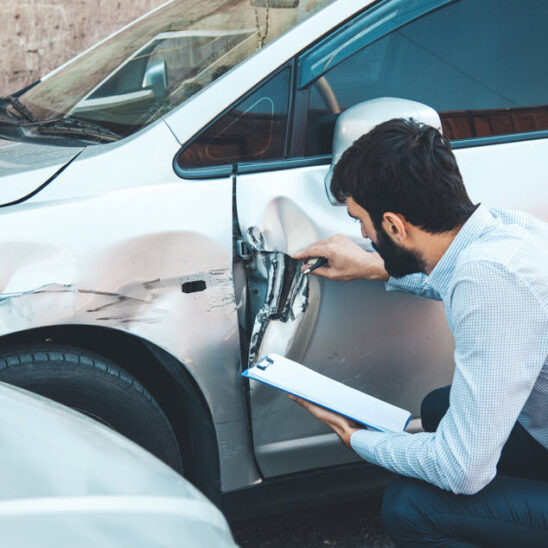Car accident settlements can take several months to several years depending on specific factors in the case, including how the accident occurred, who is at fault for the accident, and the extent of personal injuries and property damages. In most cases, car accident claims never proceed to court. Instead, damages are typically paid through a settlement.
Understanding Car Accident Settlements
Personal injury claims cover a wide range of injuries that result from car accidents, slip and fall accidents, physical trauma, and violent actions. When injuries are caused by negligent actions of another person, injury victims are entitled to receive compensation for their injuries. Most injury victims turn their case over to a car accident attorney, who can file a lawsuit in court or negotiate a settlement award through the at-fault party’s insurance provider.
The majority of accident cases are settled out of court between the injury victim’s personal injury attorney and the insurance company handling the claim. To determine the dollar amount of the settlement award, the claim must be investigated and evaluated by an insurance claims adjuster. This process can last months or even years, depending on the complexity of the accident and injury details and damages.
Estimating a Settlement Timeline
When calculating settlement payments for car accidents, cases may involve a variety of complex issues that impact the settlement timeline. Car accident claims are especially complicated by the necessity to prove important facts such as how the accident occurred, fault for the accident, and the severity of injuries and property damage.
Contacting the Policyholder and Claimant
After a car accident claim is filed, an insurance adjuster will contact the policyholder, as well as the injury victim (the claimant) to discuss details of the accident. After gathering information about the accident, the insurance adjuster will compare details provided by both parties to establish who is at fault for the accident.
During this process, the insurance adjuster will also review other information collected from the scene of the accident. This usually includes:
- Police Reports – Police reports from car accident scenes focus on details that help to prove fault for the accident. Reports often indicate car speeds and impact speeds, skid marks, risky driving behaviors, personal injuries, and property damages to vehicles and nearby objects.
- Eyewitness Statements – Any eyewitnesses to the accident will be interviewed at the scene and noted in the police report. Eyewitnesses will also be questioned by insurance adjusters who are trying to determine fault for the car accident.
Establishing Proof of Liability
Showing proof of liability for a car accident has a big impact on how long it takes to get a car accident settlement. In some cases, a driver’s negligent actions such as speeding, ignoring stop signs, running red lights, and drunk or impaired driving is enough to prove liability. In other cases, proving fault may be more difficult. If more than one driver is found to be at fault for the car accident, each driver may share a percentage of liability.
Indiana follows “at-fault” regulations for drivers involved in car accidents. This means that an injury victim in a car accident can file a claim with the at-fault party’s insurance provider to recover damages related to the accident. This may include compensation for medical bills, lost wages, and property damage. If the at-fault driver’s insurance coverage is insufficient, the injury victim can file a claim with car accident attorneys in Indiana to recover damages.
Calculating the Value of a Claim
When the insurance claim adjuster finishes investigating and reviewing the case, he or she assigns a value to the injury claim. When calculating value, the adjuster looks at two important factors: (1) the claimant’s chances of winning if the case proceeds to a court trial, and (2) the jury’s potential award for damages for calculated damages and incalculable damages.
- Calculated Damages – Medical expenses, lost income, and property damages are calculated damages. Insurance claims adjusters pay close attention to calculated damages provided by health care providers, hospitals, and licensed physicians.
- Incalculable Damages – Pain and suffering linked to physical pain and emotional distress are difficult to calculate. Insurance claim adjusters use specialized software formulas that place a value on pain and suffering.
Making a Settlement Offer
Once the value of a claim is calculated, a settlement offer is made to the claimant. If the claimant accepts the offer, the payment may be paid out in individual payments according to a settlement agreement or a lump sum. In many cases, insurance companies start with low offers, 40% to 50% less than what the case is worth, especially if the injury victim does not have a car accident attorney who can negotiate the settlement terms.

